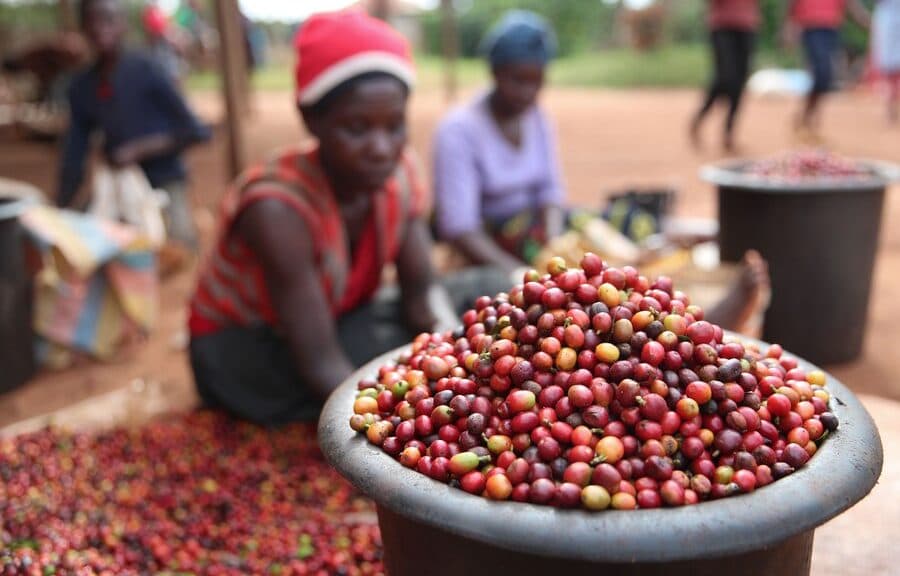We're loading the full news article for you. This includes the article content, images, author information, and related articles.
China's dramatic surge to become the fourth-largest importer of Ethiopian coffee signals a major shift in global trade dynamics, presenting a significant challenge to Kenya's own coffee export ambitions in the lucrative Asian market.

NAIROBI, Kenya – China has rapidly emerged as the fourth-largest importer of Ethiopian coffee, a significant leap from its seventh position just two years ago. This development, confirmed by Shafi Umer, deputy director-general of the Ethiopian Coffee and Tea Authority (ECTA), underscores a pivotal shift in the global coffee trade landscape with profound implications for East African producers, particularly Kenya.
In the first quarter of Ethiopia's current fiscal year, which commenced on July 8, 2025, the nation exported approximately 9,470 tonnes of coffee to China, generating an impressive $65.49 million in revenue. Umer highlighted that this figure represents a nearly seven-fold increase compared to the same period in the previous year, a staggering growth trajectory attributed to rising Chinese consumer demand for high-quality, organic coffee and enhanced delivery services.
While Germany, Saudi Arabia, and Belgium retain their spots as the top three destinations for Ethiopian coffee, China's ascent into the top four disrupts the traditional export hierarchy. The United States, South Korea, the United Arab Emirates, Japan, Italy, and Russia complete the top ten list of markets for Ethiopia's prized Arabica beans. This diversification of export destinations, with a clear pivot towards Asia, signals Ethiopia's successful strategy to expand its global market reach.
The burgeoning coffee culture in China, especially among the youth, is a key driver of this trend. Chinese consumers are increasingly embracing the unique and premium flavors that Ethiopia, the birthplace of Arabica coffee, has to offer. This evolving taste preference has created a fertile ground for Ethiopian exporters, who are capitalizing on the opportunity to meet the growing demand in one of the world's largest consumer markets.
This development presents a formidable challenge for Kenya, another of East Africa's premier coffee-producing nations. Both countries are renowned for their high-quality Arabica beans, often competing for the same discerning international buyers. However, Ethiopia's significantly larger production volume—approximately 450,000 metric tons annually compared to Kenya's 50,000—gives it a considerable advantage in meeting large-scale demand.
As China's appetite for coffee continues to grow, Kenyan producers and exporters will need to devise innovative strategies to secure and expand their market share. This could involve a greater focus on niche and specialty markets, enhancing value addition through processing and branding, and strengthening direct trade relationships with Chinese buyers. The Kenyan government and coffee industry stakeholders must closely monitor these market dynamics and adapt their export strategies accordingly to remain competitive.
The coffee sector is a critical pillar of the economies of both Ethiopia and Kenya, providing livelihoods for millions of smallholder farmers and generating a substantial portion of their foreign exchange earnings. For Ethiopia, coffee accounts for a significant share of its total export revenue, making the industry vital for the country's macroeconomic stability. Similarly, in Kenya, the coffee sector is a major employer and a key contributor to the agricultural economy.
The rise of China as a major coffee importer offers both opportunities and challenges for the East African region as a whole. On one hand, it provides a vast and growing market for the region's coffee, potentially leading to increased export revenues and economic growth. On the other hand, it intensifies competition among producing countries, necessitating a greater focus on quality, efficiency, and market differentiation.
To navigate this evolving landscape, East African coffee producers must prioritize sustainable farming practices, invest in modern processing technologies, and build robust and transparent supply chains. Collaboration between governments, industry bodies, and the private sector will be crucial in addressing the challenges and harnessing the opportunities presented by the shifting global coffee market.
As China's influence in the global coffee trade continues to expand, the ability of countries like Kenya and Ethiopia to adapt and innovate will determine their success in this new era of coffee commerce. The coming years will be a critical test of their resilience, strategic foresight, and commitment to maintaining their positions as leading producers of the world's finest coffees.
Keep the conversation in one place—threads here stay linked to the story and in the forums.
Sign in to start a discussion
Start a conversation about this story and keep it linked here.
Other hot threads
E-sports and Gaming Community in Kenya
Active 9 months ago
The Role of Technology in Modern Agriculture (AgriTech)
Active 9 months ago
Popular Recreational Activities Across Counties
Active 9 months ago
Investing in Youth Sports Development Programs
Active 9 months ago